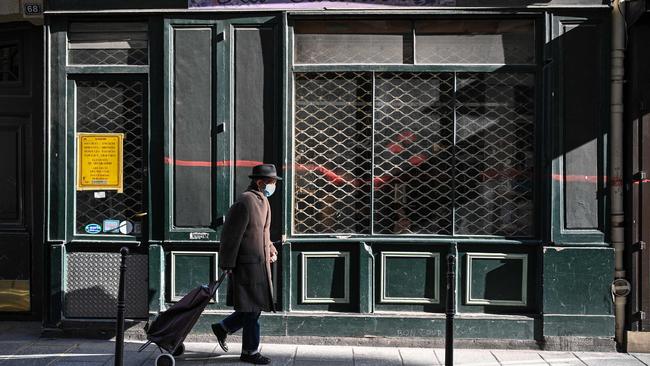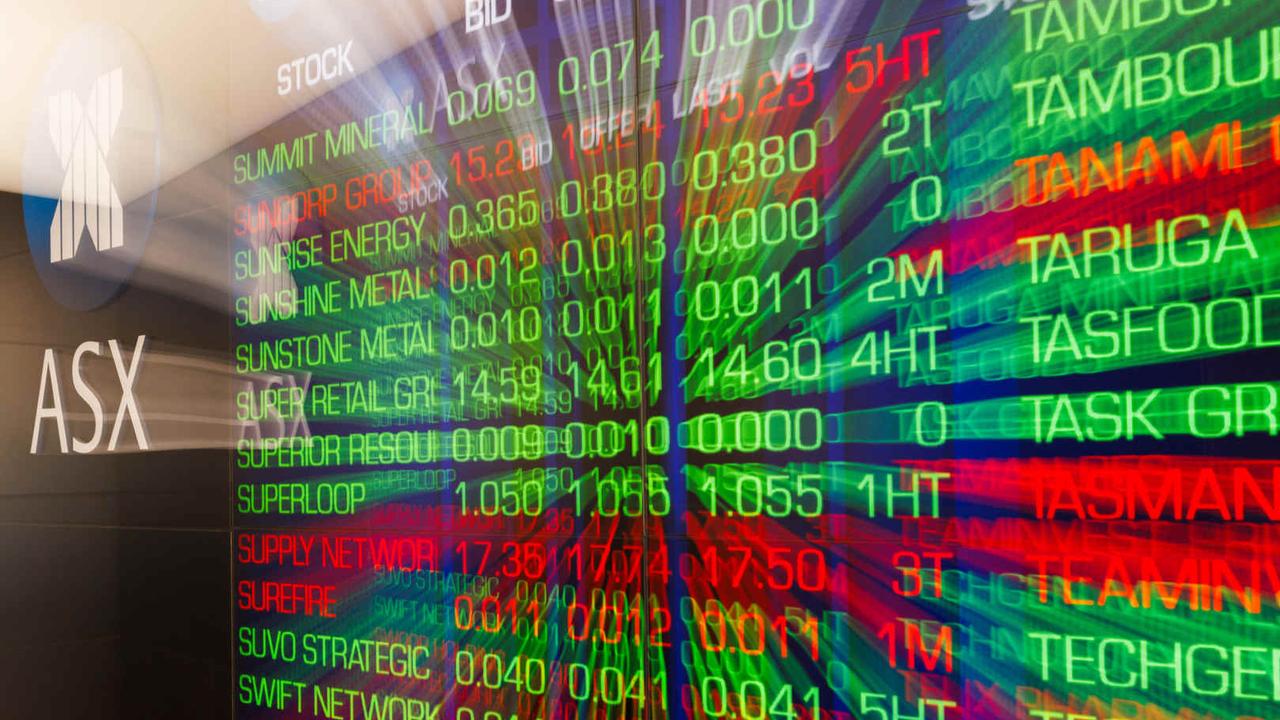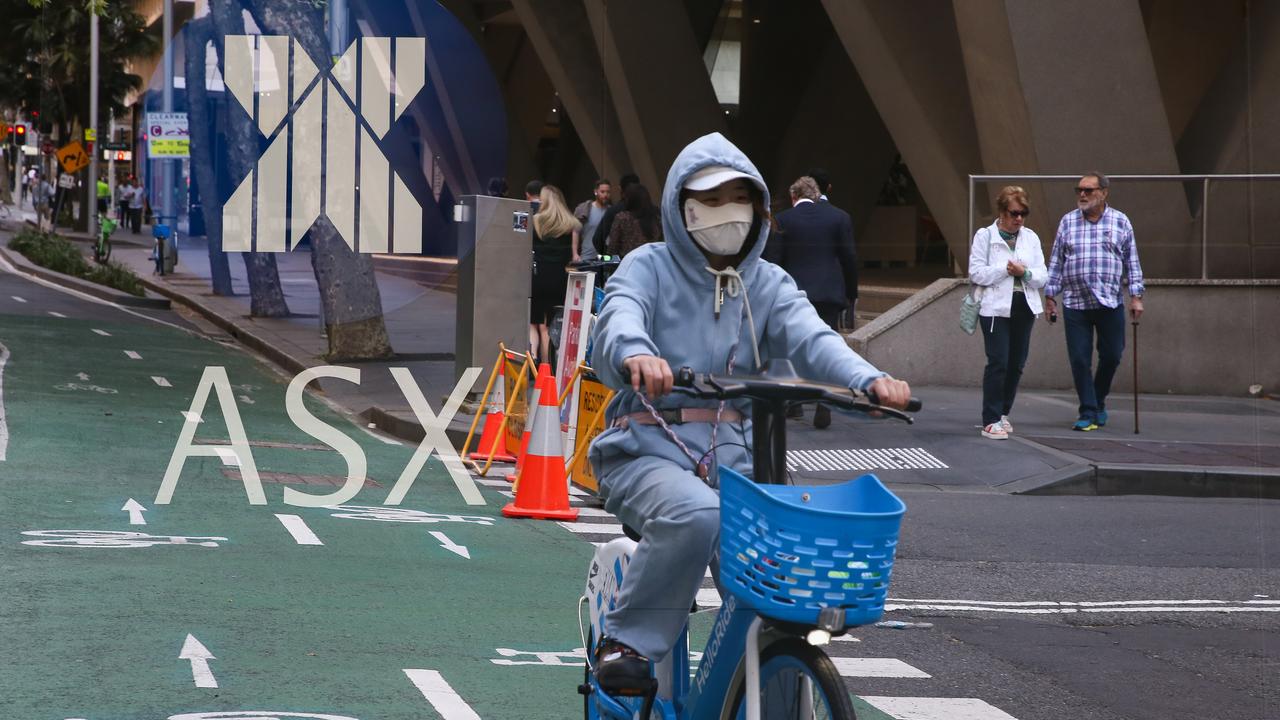Travel stocks sinking as Europe suffers third Covid wave
Travel and energy-related companies were among those bucking a broader rise in the sharemarket as renewed lockdowns in Europe threaten “reopening” trades.

Travel and energy-related companies were among those bucking a broader rise in the Australian sharemarket on Wednesday as renewed lockdowns in Europe threaten “reopening” trades.
A solid rise in the local bourse this week has been driven by a sharp fall in bond yields — helping growth stocks and “bond proxies” — as well as increasing takeover activity and a deluge of dividend payments to shareholders, much of which will find its way back into the sharemarket at some point.
The S&P/ASX 200 index rose 0.5 per cent to 6778.8 points as Australia’s 10-year bond yield fell almost 9 basis points to 1.645 per cent following a similar fall in US Treasury yields.
Sharemarket investors were evidently breathing a sigh of relief as pressure came off valuations.
Australia’s benchmark bond yield has fallen almost 30 basis points since it rocked the market by spiking up almost 20 basis points to an 11-month high of 1.923 per cent four weeks ago.
But while it’s once again tempting to “look through” the latest COVID lockdowns in Europe and assume that widespread vaccinations will be a panacea that stops the pandemic in its tracks, that assumption, for Europe at least, was evidently incorrect and may also be so in the US.
“Bad news” on the pandemic and the economic outlook may eventually be “good news” again if it increases the pace of quantitative easing by the European Central Bank or Federal Reserve.
But with sharemarkets globally having risen so strongly to record highs since the bottom just over a year ago, one of the steps on the path to more stimulus may be a market correction.
Few would have been planning to fly to Europe any time soon but the market has continued to price out a normalisation of earnings for travel stocks, with Webjet down 4.6 per cent, Flight Centre down 3.1 per cent, Sydney Airport falling 2.2 per cent and Qantas off 1.5 per cent on Wednesday.
The crude oil market is certainly taking the threat to global demand from new lockdowns seriously, with West Texas crude down more than 6 per cent to a six-week low of $US57.76 yesterday after falling 7.1 per cent only three days earlier.
In the short term at least, the reopening angst affecting travel and energy shares may spread.
It may be compounded by some de-risking by multi-asset investors like balanced mutual fund risk parity investors as the recent positive correlation between shares and bond yields swamps the tailwind from falling market volatility which saw the VIX index hit a 14-month low.
Of course the reality of the past year turned out quite differently to what most investors expected.
Investing success depended to some degree on predicting the reactions of central banks and governments to the coronavirus pandemic, as well as vaccine developments.
That may also apply in reverse as economic growth and inflation rise this year.
Citi, for one, now finds it hard to justify chasing the US market on a valuation basis.
With the S&P 500 now trading on a 12-month forward price-to-earnings multiple of about 22 times, Citi’s chief US equity strategist, Tobias Levkovich, says: “Equities are not set up for appreciation.”
PE multiples above 20 times have been associated with returns averaging -0.9 per cent in the following 12 months, whereas the “sweet spot” valuation of less than 8 times has been associated with 12 month returns averaging 21.1 per cent, based on data going back to 1940.
Levkovich says the contention that US market upside is justified due to low bond rates “can be easily disproved”, as the relationship between bond yields and the PE multiple of the market “has diverged rather dramatically”.
“One could argue that risk premiums for sluggishly growing value names is a key factor given that multiples of heady growth stocks indicate that there is inordinate risk tolerance, particularly when we see price to sales multiples in double digits,” he says.
His seven-metric approach “also looks uncomfortable” for valuations, with the degree of overvaluation at roughly two standard deviations (albeit not as high as it reached in the tech bubble of the late 1990s), while his earning yield gap methodology “also is intimating caution”.
His only valuation model that was until recently “attractive” for the S&P 500 was a “normalised earnings yield gap analysis” — based on a cyclically adjusted PE multiple or “CAPE” and the five-year forward swap contract on 10-year Treasuries.
“However, that one now has slipped into unattractive territory,” Levkovich says.
His present value of long-term EPS growth opportunity is also “less appealing” with the S&P 500 having risen more than 80 per cent in the past year.
Investors have “already has been rewarded and future returns could be very much constrained”.
“We further stress that the best investment thesis now could be that earnings will trump expectations, though such thinking is in place, with stocks pricing in $US185-like earnings per share (for the S&P 500) — with consensus forecasts in the $US174 range — without yet calibrating the growing likelihood for higher corporate tax rates under consideration by the Biden administration.
“Hence, we worry that too many investors are excited about GDP growth north of 6 per cent without fully understanding what is being discounted in share prices, especially when our sentiment work shows euphoric mindsets.”
Of course bulls will argue that the S&P 500 remains strongly correlated to the degree of US quantitative easing and the Fed is “not even thinking about thinking about” reducing that.
But at least Fed chair Jay Powell and Treasury Secretary Janet Yellen have been “on message” in their congressional testimony, calling for sustained policy stimulus despite economic recovery.





